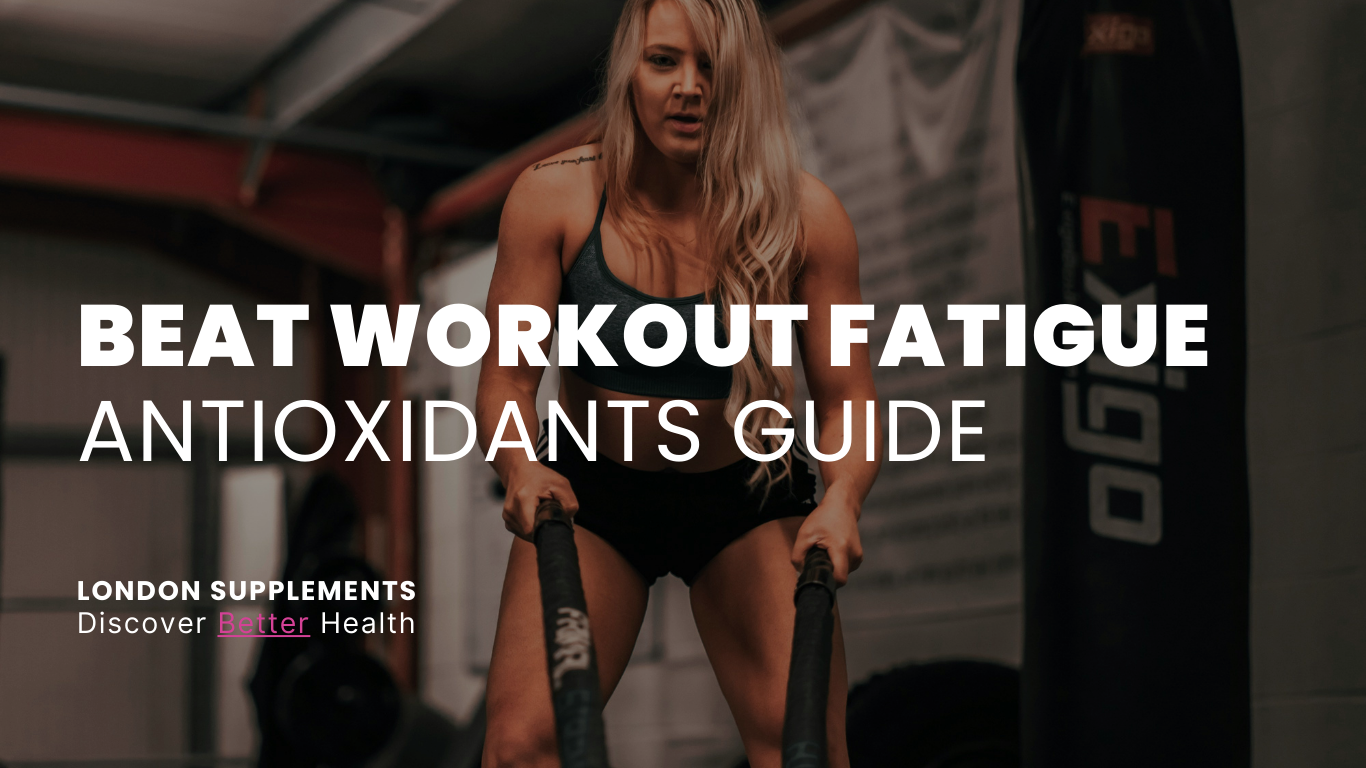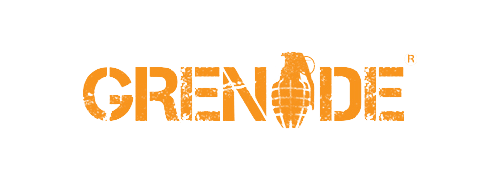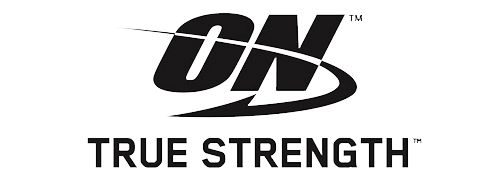
For athletes, weight trainers, and fitness enthusiasts, muscle recovery is just as important as the workout itself. Without proper recovery, muscles can’t repair and grow, and fatigue starts to build up. One often-overlooked solution to faster recovery and improved performance? Antioxidants. These powerful compounds work to counteract the damaging effects of intense exercise, speeding up recovery and allowing you to train harder and more effectively.
In this article, we’ll dive into the role of antioxidants in muscle recovery and performance, explaining what they are, why they’re essential, and the best ways to get them—whether through natural food sources or supplements.
What Are Antioxidants and Why Are They Important for Athletes?
Antioxidants are molecules that help neutralise free radicals—unstable atoms that can cause cell damage in the body. When we train intensely, especially during weightlifting or high-intensity workouts, our bodies produce more free radicals. This increase in free radicals creates something called oxidative stress, which can lead to inflammation, muscle soreness, and longer recovery times.
For athletes, managing oxidative stress is crucial. If left unchecked, oxidative stress can damage muscle cells and slow down the body’s recovery process.
By reducing oxidative stress, antioxidants play a key role in helping muscles repair more quickly, reducing soreness, and preparing you for your next workout. In short, they help your body cope with the physical stress of training, so you can keep pushing towards your fitness goals.
The Science: How Antioxidants Help Combat Oxidative Stress in Muscles
To understand why antioxidants are beneficial for recovery, let’s take a closer look at what happens to muscles during intense exercise.
When you work out, your muscles undergo microscopic damage, which is a normal part of building strength and endurance. This process causes your body to release free radicals as a by-product of increased oxygen use. Free radicals are highly reactive molecules that, if left unchecked, can lead to oxidative damage. This oxidative damage contributes to inflammation, muscle soreness, and the "burnt out" feeling that often follows an intense session.
This is where antioxidants come in. They work by neutralising free radicals and reducing the damage they cause. Certain antioxidants have also been shown to reduce inflammation, which further aids in speeding up recovery. Studies have found that antioxidants can help improve endurance, reduce muscle soreness, and shorten recovery time, allowing athletes to train more frequently and at higher intensities.
Top Natural Sources of Antioxidants for Muscle Recovery
Supporting muscle recovery with antioxidants is easy with a variety of foods that can cater to different dietary needs and preferences. Here are some of the best sources, whether you’re more plant-focused or include animal products in your diet:
1. Berries (Blueberries, Strawberries, Raspberries)
- Key Antioxidants: Anthocyanins, vitamin C
- Berries are antioxidant powerhouses, thanks to compounds like anthocyanins and vitamin C, which help reduce muscle soreness and support immune health. Adding a handful to a post-workout smoothie is an easy and tasty way to enhance recovery.
2. Leafy Greens (Spinach, Kale, Broccoli)
- Key Antioxidants: Beta-carotene, lutein, and vitamin C
- Leafy greens provide a nutrient-rich blend of antioxidants and anti-inflammatory compounds, including beta-carotene, lutein, and vitamin C. Adding spinach, kale, or broccoli to meals can help combat inflammation and support overall muscle recovery.
3. Nuts and Seeds (Almonds, Walnuts, Chia Seeds)
- Key Antioxidants: Vitamin E, polyphenols
- Nuts and seeds, such as almonds, walnuts, and chia seeds, are rich in vitamin E and polyphenols, which are crucial for protecting cells from oxidative stress. They also provide omega-3 fatty acids, which support inflammation reduction, making them ideal for recovery.
4. Herbs and Spices (Turmeric, Ginger)
- Key Antioxidants: Curcumin, gingerols
- Known for their powerful anti-inflammatory properties, spices like turmeric and ginger are fantastic for easing muscle soreness. Curcumin, the active compound in turmeric, is particularly effective in supporting quicker recovery times and improving joint comfort.
5. Green Tea
- Key Antioxidants: Catechins, particularly EGCG
- Green tea provides catechins, such as EGCG, which have been shown to reduce muscle damage and inflammation. A daily cup of green tea can offer a gentle antioxidant boost, enhancing recovery without the need for additional calories.
6. Eggs
- Key Antioxidants: Lutein, zeaxanthin
- Eggs contain antioxidants like lutein and zeaxanthin, known for supporting cell health and reducing inflammation. They’re a versatile source of high-quality protein, making them ideal for those seeking a protein boost alongside antioxidant benefits.
7. Fatty Fish (Salmon, Mackerel, Sardines)
- Key Antioxidants: Selenium, plus omega-3 fatty acids
- Fatty fish provide selenium, an antioxidant mineral, alongside omega-3 fatty acids, which reduce inflammation. This combination makes fatty fish a valuable option for muscle recovery and joint health, especially after intense exercise.
8. Dairy Products (Milk, Yoghurt, Cheese)
- Key Antioxidants: Glutathione (in high-quality dairy)
- High-quality dairy products can offer small amounts of glutathione, an antioxidant that supports immune health and reduces oxidative stress. Greek yoghurt or a glass of milk can also provide protein, which aids in muscle repair.
Incorporating these antioxidant-rich foods into your diet can give your body a natural defence against oxidative stress, helping muscles recover more quickly and keeping you on track with your training.
Key Antioxidant Supplements to Support Muscle Recovery
While a diet rich in antioxidants is essential, supplementation can be helpful—especially during periods of intense training. Here are some of the most effective antioxidant supplements for athletes:
1. Vitamin C and Vitamin E
- Benefits: Reduces oxidative stress and supports immune function
- Vitamin C and E are among the most popular antioxidants for athletes. Vitamin C supports immune health, while Vitamin E helps repair cell membranes, protecting muscles from damage.
2. Polyphenols (Green Tea Extract)
- Benefits: Reduces muscle soreness and boosts endurance
- Green tea extract contains polyphenols, particularly EGCG, which has been shown to reduce inflammation and muscle soreness, helping athletes recover faster.
3. Coenzyme Q10 (CoQ10)
- Benefits: Supports cellular energy production and endurance
- CoQ10 is an antioxidant that plays a role in cellular energy production. It’s especially useful for endurance athletes, as it helps improve stamina and reduces fatigue.
4. Glutathione and N-Acetylcysteine (NAC)
- Benefits: Reduces oxidative damage and supports liver health
- Glutathione is a powerful antioxidant, while NAC is a precursor to glutathione. Together, they support recovery, reduce oxidative damage, and promote overall health.
5. Curcumin
- Benefits: Reduces inflammation and supports joint health
- Found in turmeric, curcumin has strong anti-inflammatory effects. Studies suggest it can reduce muscle soreness and enhance recovery, making it ideal for athletes dealing with joint or muscle pain.
These supplements can provide extra antioxidant support, especially when combined with a balanced diet. Just remember to follow recommended dosages and consult a healthcare professional if you’re unsure about adding them to your routine.
When to Prioritise Food Sources vs. Supplements
So, should you rely on food sources or supplements for antioxidants? Ideally, a mix of both. Whole foods provide a variety of antioxidants along with other beneficial nutrients like fibre, vitamins, and minerals. They’re a great foundation for any diet, providing long-term support for health and recovery.
However, supplements can be beneficial if you’re training at a high level, facing a particularly intense workout schedule, or struggling to get enough antioxidants from food alone. Supplements like vitamin C, CoQ10, and green tea extract can help target specific needs without replacing the balanced nutrition that food provides.
Potential Risks and Considerations
While antioxidants are incredibly beneficial, it’s possible to overdo it. Some research suggests that excessive antioxidant supplementation may interfere with the natural muscle adaptation process, which relies on a certain level of oxidative stress to stimulate muscle growth. For this reason, it’s best to use antioxidants in moderation and stick to recommended dosages.
As always, think of supplements as a complement to a healthy diet, not a substitute. And if you’re unsure, consulting a healthcare professional can help you find the right balance.
Conclusion: Recover Faster and Train Harder with Antioxidants
Antioxidants play a vital role in muscle recovery and performance enhancement, helping your body combat oxidative stress, reduce soreness, and support overall health. By incorporating antioxidant-rich foods and supplements into your routine, you can optimise your recovery and keep pushing towards your fitness goals.
Whether you’re getting antioxidants from berries, green tea, or a high-quality supplement, remember that balance is key. Take care of your body, give it the support it needs, and watch your performance and recovery reach new heights.











